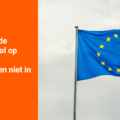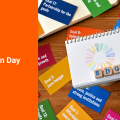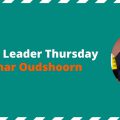
By Jannelieke Aalstein
In recent months, a lot has been said and written about Qatar as the host country for the Football World Cup. About the terms and conditions of employment of workers who built the stadiums, about the (missing) human rights in Qatar, about whether or not alcohol is allowed and more. In our opinion, Qatar should never have been included as an option, if you see what we are all tripping over and angry about after the draw. But that's another topic.
Once decisions have been made, the next step is to proactively determine how you relate to them. What obstacles do you foresee and how do you want to deal with them? Whatever message you want to convey, in any way. The fact that we as the Netherlands seem to act in this area above all in a reactive and flexible manner is disappointing and food for thought. While some other countries are looking for new ways to raise issues, we - at least in this area - seem to be increasingly losing our pioneering role and "in the Netherlands everyone can be themselves" mentality.
Was it to be expected that Qatar would tighten things up in the final days before the start of the World Cup? Yes. Was it to be expected that FIFA would do everything in its power to justify their choice and thus accommodate Qatar in areas where it continued to disagree? Yes. Could or should this have been a reason for the KNVB and the Dutch government much earlier to proactively think about ways to express ourselves as a country? Also yes, as far as we are concerned.
Accepting that Van Dijk does not wear the captain's armband because he does not want to risk a yellow card is understandable. But does that stop the process? Has no alternative been devised, no other way to make visible how we as the Netherlands can still address what we think of equality and inclusion, and human rights? For example, has consideration been given to having the entire team wear a One Love band? To have the trainers and the coach make a specific statement? To start the conversation off the field in a different way? To – like the brave players of Iran – not sing along during the national anthem? To – like the German team – put their hand over their mouth during the national anthem? Or to print the word Love on the shirts, just like the Belgian team? Have the players themselves been challenged to take the space to express themselves in different ways? The sponsors? Or does it actually say a lot that the KNVB has temporarily pulled the plug on the One Love campaign even in the Netherlands?
Believing in equal rights and space for everyone is not a marketing stunt, not a colorful, one-off expression and nothing else. It is a basic attitude that you adopt, a choice that you make, an issue that you embrace with full conviction. Or not. But the choice you make has consequences; when one path ends, a well-prepared and convinced supporter of that choice has long thought about alternatives. We call that issue management; think about steps that may come and how you want to relate to them. Do you take the lead or do you resign yourself to it? Where do you see or create space for civil disobedience? Together with which stakeholders or partners can you set the agenda in a different way? How can you activate the Legion? What “risks” are you willing to take, because you truly believe that equal rights are important?
It is hoped that the KNVB will choose a new route from now on and will stick to it with conviction, even if things get rough or difficult. Because if they don't do it in this area, who is the issue owner?





